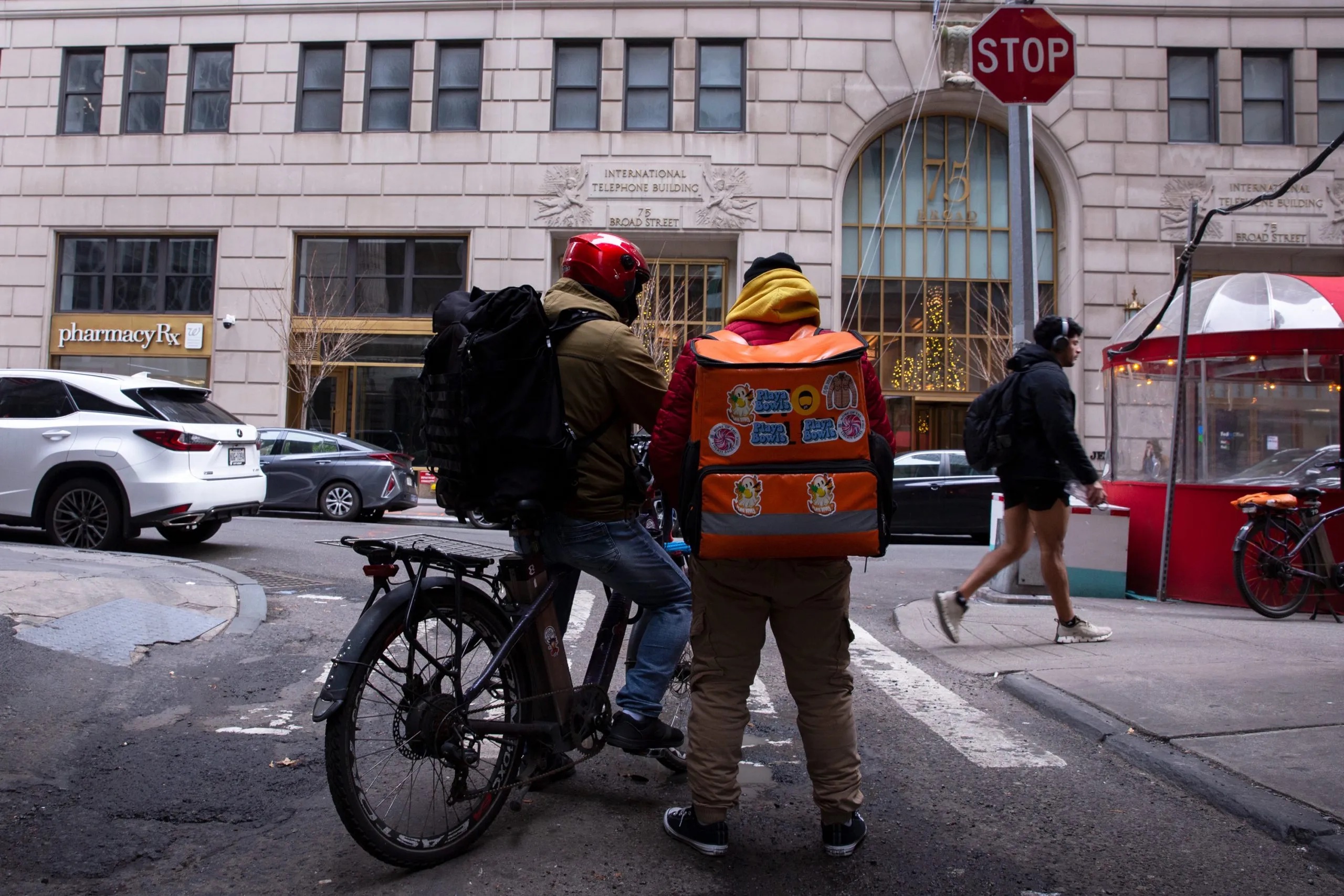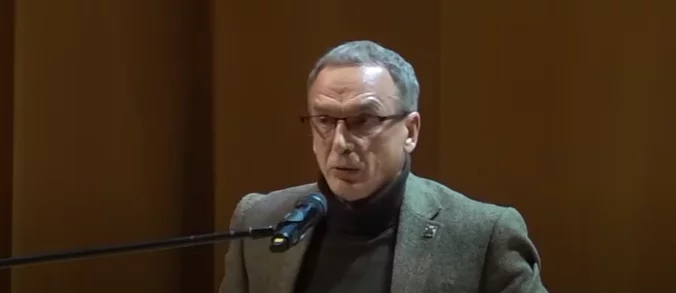2023/12/07

Travellers and commuters on Germany's rail network will be forced to make alternative travel plans on Friday, as the fourth strike at Deutsche Bahn this year comes into force.
The train drivers' union GDL has called on its members to walk off the job Thursday evening at 10:00 pm (2100 GMT). The strike on Germany's national rail operator Deutsche Bahn (DB) passenger services will end 24 hours later, on Friday evening at 10:00 pm.
Disruptions are expected even before the strike begins, and are expected to have knock-on effects afterwards. An emergency timetable with greatly reduced services will apply during the strike.
Employees of Deutsche Bahn, including the S-Bahn suburban rail companies in Berlin and Hamburg as well as the railway companies Transdev, AKN and City-Bahn Chemnitz and other companies have been called out on strike.
The freight transport strike will begin at 6:00 pm on Thursday evening.
The German Train Drivers' Union (GDL) wants to increase the pressure in the current collective bargaining round. The union is demanding a reduction in working hours for shift workers.
"The employers are stonewalling everywhere and are not prepared to give the employees the appreciation and recognition they deserve for the work they have done," criticized the union.
However, passengers can at least breathe a sigh of relief in one respect: the union has said there will be no further strikes through the busy public holiday period.
"We will now carry out this strike action on Thursday and Friday, and it will be the last one for this year," said GDL boss Claus Weselsky on Wednesday evening.
"This will be followed by the ballot and the count on December 19." He promised no further industrial action until after the first week of January.
Deutsche Bahn criticized the GDL for spoiling the second Advent weekend for millions of uninvolved people. A strike so soon after the onset of winter and so close to the timetable change was irresponsible and selfish, criticized Martin Seiler, member of the Deutsche Bahn Executive Board for Human Resources.
"Instead of negotiating and facing up to reality, the train drivers' union is going on strike for unrealizable demands. This is absolutely unnecessary," he said.
The GDL last called a strike at Deutsche Bahn on November 15 and 16.
In March and April, the larger railway and transport union (EVG) called one-day strikes. A ballot on indefinite strikes is already underway in the unusually tough collective bargaining round for train drivers.
© Deutsche Presse-Agentur GmbH
2023/12/06

Train drivers at Germany's national railway Deutsche Bahn will go on strike from Thursday evening until Friday evening, the trade union GDL announced.
The nationwide strike from 10 pm (2100 GMT) on Thursday until 10 pm on Friday will likely lead to thousands of train cancellations.
The strike affects long-distance and regional trains, as well as suburban commuter rail lines in Hamburg and Berlin. Freight service will also be disrupted beginning at 6 pm, the union announced.
The latest strike comes amid contentious collective bargaining talks between the GDL trade union and Deutsche Bahn management over wages and working hours. GDL has demanded shorter working hours for drivers in addition to substantial raises.
GDL leader Claus Weselsky declared negotiations a failure on November 24 after Deutsche Bahn management offered smaller raises but outright rejected the possibility of shortening full-time working hours.
Deutsche Bahn swiftly denounced the strike call on Wednesday as "irresponsible and selfish" and accused the union of ruining the weekend for millions of regular passengers not involved in the dispute.
"Instead of negotiating and facing up to reality, the train drivers' union is going on strike for unfulfillable demands. This is absolutely unnecessary," said Martin Seiler, Deutsche Bahn's director of human resources.
During the most recent GDL strike on November 15 and November 16, Deutsche Bahn was forced to cancel about 80% of all long-distance trains as well as numerous regional trains across the country.
The strike is the fourth labour action to hit Deutsche Bahn this year.
The train drivers' decision to strike apparently ignores the position of the German Civil Service Federation (dbb), an umbrella group of public-sector labour unions to which GDL belongs.
Dbb is scheduled to hold collective bargaining talks on Thursday and Friday.
"It would be absurd if our actions were to be torpedoed by strikes by our own member organization," dbb chairman Ulrich Silberbach recently told the Stuttgarter Zeitung newspaper.
GDL, which represents about 10,000 Deutsche Bahn employees, is the smaller of two unions for workers at the state-owned railway. But because of their critical role, the drivers hold an outsized power to cripple service on the Deutsche Bahn network.

© Deutsche Presse-Agentur GmbH
2023/12/08

Would-be rail passengers in Germany will have to choose alternative transport means until 10:00 pm (GMT 2100) Friday, as the German train drivers' union (GDL) strike interrupts services.
Delays and disruptions are also expected to continue through the weekend, as the network gets back to normal. The union has promised not to strike over the Christmas holiday period, but warned that their industrial campaign will switch up a gear in the new year.
The train drivers' union (GDL) announced that strikes will become "longer and more intense," GDL leader Claus Weselsky told Bayerischer Rundfunk radio on Thursday.
The announcement came as the GDL wanted to increase the pressure in the current collective bargaining round. The union is demanding a reduction in working hours for shift workers.
A ballot on indefinite strikes is already under way in the unusually tough collective bargaining round for train drivers.
"We will count the ballot on December 19 and will not strike in the first week of January, but after that the strikes will be longer and more intense," the GDL leader said.
Travellers and commuters on Germany's rail network are again being forced to make alternative travel plans on Friday, as the fourth strike at rail operator Deutsche Bahn this year kicks in.
The train drivers' union GDL had called on its members to walk off the job on Thursday evening at 10 pm (2100 GMT). The strike on Deutsche Bahn's passenger services will end 24 hours later, on Friday evening at 10 pm.
Deutsche Bahn criticized the GDL for spoiling the second Advent weekend for millions of people. A strike so soon after the onset of winter and so close to the timetable change was irresponsible and selfish, criticized Martin Seiler, a member of Deutsche Bahn's executive board for human resources.
"Instead of negotiating and facing up to reality, the train drivers' union is going on strike for unrealizable demands. This is absolutely unnecessary," he said.
The GDL last called a strike at Deutsche Bahn on November 15 and 16.
In March and April, the larger railway and transport union EVG called one-day strikes.
Disruptions are expected to occur even before the strike begins, and to have knock-on effects afterwards. An emergency timetable with greatly reduced services will apply during the strike.
Employees of Deutsche Bahn, including the S-Bahn suburban rail companies in Berlin and Hamburg as well as the railway companies Transdev, AKN and City-Bahn Chemnitz and other companies have been called out on strike.
A freight transport strike will begin at 6 pm on Thursday evening.
"The employers are stonewalling everywhere and are not prepared to give the employees the appreciation and recognition they deserve for the work they have done," criticized the union.



© Deutsche Presse-Agentur GmbH

















